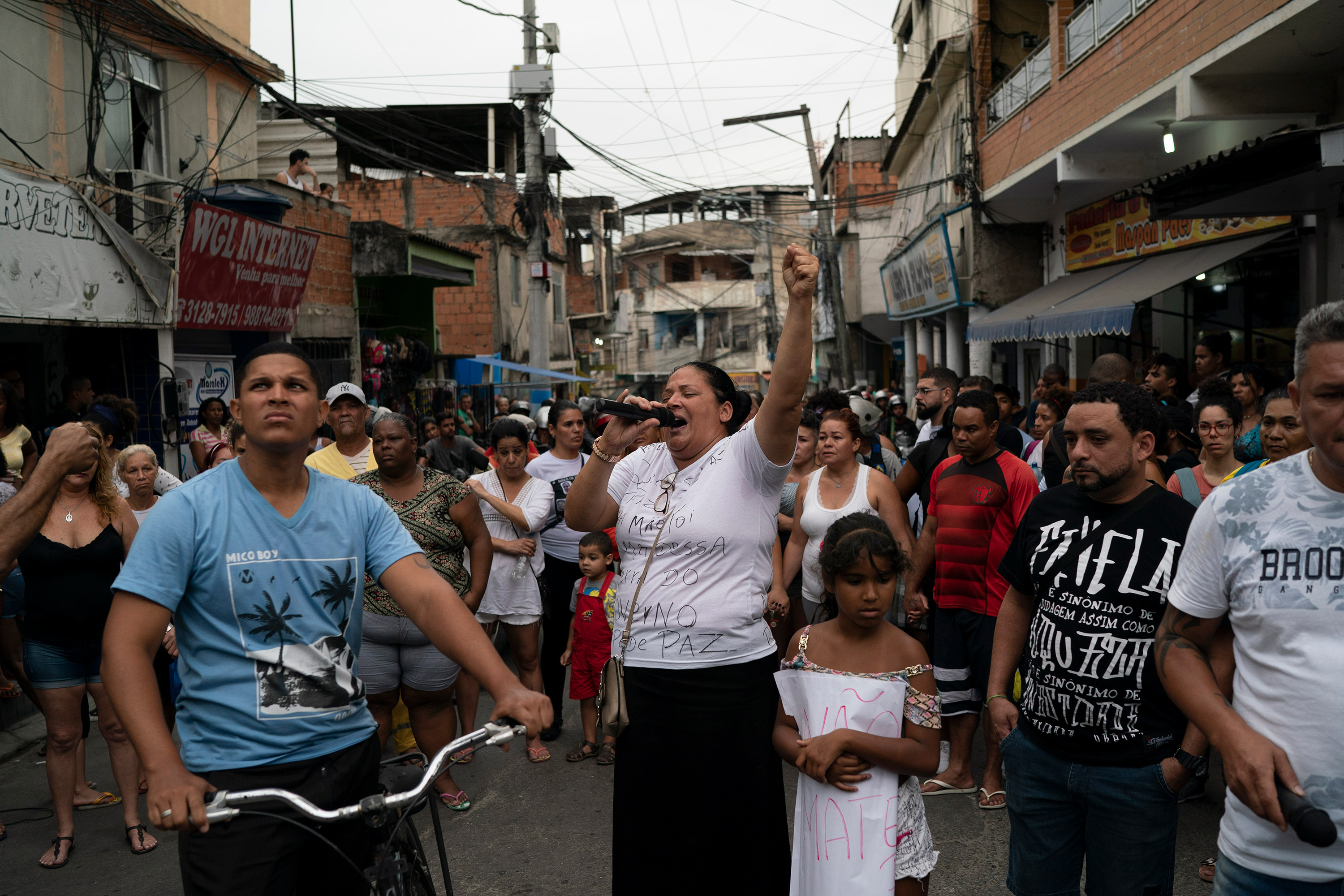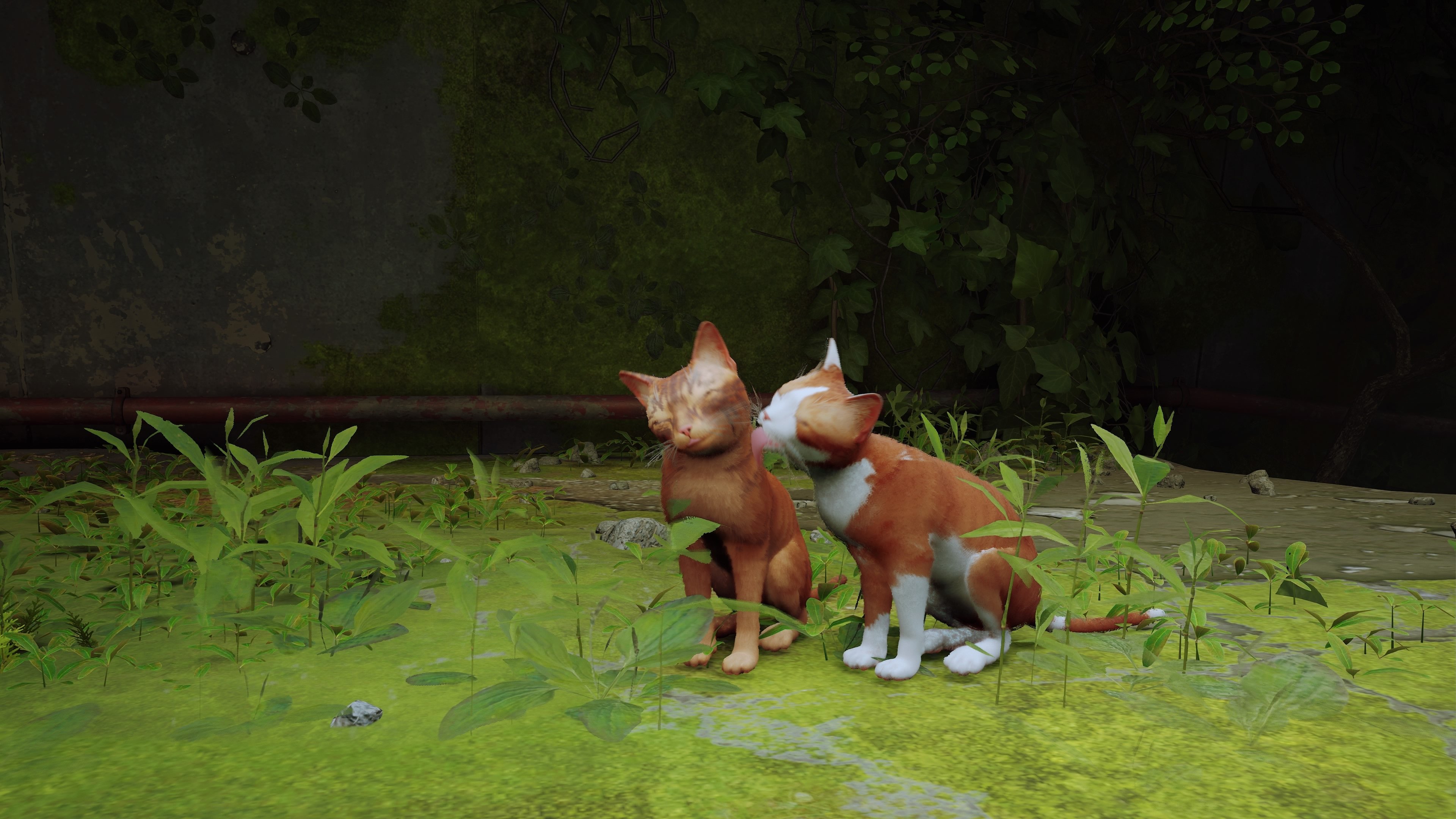
Julia Borges was at her cousin’s 12th birthday party when she was shot. The 17-year-old was standing on a third-floor balcony when a stray bullet hit her in the back and lodged in the muscle between her lungs and the aorta.
It was November 8th. Fortunately Borges was rushed to hospital and has since recovered. Many are not so lucky. At least 106 people have died from stray bullets in Rio this year so far this year.
Among the most dangerous areas are the narrow streets of the city’s favelas, where more than a million people currently live. Here, the houses are stacked on top of each other and the paths that wind between them are dotted with small squares. These same streets regularly echo with the sound of gunfire: shootings occur daily between police and drug traffickers, rival groups of traffickers or even police-backed militias.
Innocent victims are often caught in the crossfire. In many cases, residents must lie on the floor or create barricades to hide from stray bullets while waiting for a truce. In 2019, Rio saw a average
of 26 shootings per day. Things have calmed down a bit since the start of the pandemic, but there was still an average of 14 shootings per day until the end of June. About 1,500 people are slaughtered each year in the Rio metropolitan area.
Living in Rio is like “being held hostage to violence,” says Rafael César, who lives in the Cordovil neighborhood, west of the city.
CROSSED ON GOOGLE PLAY
Like many residents, Cesar began using apps to stay safe. These collaborative apps help users track dangerous areas on their way home and allow residents to warn others of areas to avoid.
One of the most popular apps, Crossfire, was started by a journalist named Cecilia Olliveira. He had planned to do a story on the bullet victims roaming the city, but the information he needed was not available. So, in 2016, he created a Google Docs spreadsheet to collect information on shootings, record where and when they took place, how many victims there were, and more. In 2018, with help from Amnesty International, the spreadsheet was transformed into an app and database to help those who monitor and report gun violence. The app has been downloaded over 250,000 times and covers both Rio and Recife.
A user who hears gunshots can save it as an incident in the app. The information is verified and collated by the Fogo Cruzado team with the support of a network of activists and volunteers, and then uploaded to the platform, generating a notification to users. Fogo Cruzado also has a team of trusted contributors who can upload information instantly without such verification. Users can sign up to receive updates whenever they head to an area deemed unsafe, such as a favela known to have recently been shot or which is currently being contested by gangs.
Fogo Cruzado is used by local residents who plan to leave their homes for work or who need to check if it is safe to return later, says Olliveira.
“I started using the Fogo Cruzado because there were frequent police operations in an area that I passed through every day,” explains journalist Bruno de Blasi. He says the WhatsApp groups were full of rumors and false reports of shootings, so he decided to use the app as a way to “avoid unnecessary panics.”
Like many in the city, he had his own filming experience. Remember the one that started on the street where you live.
“The feeling was horrible, especially because this street was considered to be one of the safest and quietest in the neighborhood, where the police battalion is also located,” he said. “Suddenly I had to move away from my bedroom window at the risk of a stray bullet. It was very tense.
Fogo Cruzado also worked with other organizations to create a new map of armed groups In the janeiro river. The map, which was released in October, is designed to inform city residents of areas currently dominated by criminal factions or police militias and therefore less likely to be safe.
Other apps also collect data on the shootings, but Fogo Cruzado is one of the few that the public updates, says Renê Silva, editor of the Voz das Communities (Voice of Communities) website, which covers the Complexo do Alemão, a large group of favelas in Rio. “There are places where the app identifies shoots that are not disclosed in the media,” he says.
Application Where there are knocks (Where there are knocks) it works the same. It was originally created in January 2016 by four friends as a Facebook page. Although Fogo Cruzado focuses on the Rio metropolitan area, Where there are knocks(OTT) covers the whole state, and since 2018 it also covers the state of São Paulo. It differs from Fogo Cruzada in that it allows the user network to verify the veracity of the shooting reports.
AP PHOTO / LEO RUNS
Once you’ve downloaded the OTT app, you can choose what you want to be alerted to, whether it’s shootings, floods, or protests. Each anonymous report is reviewed by a network of over 7,000 volunteers in the field and confirmed before being uploaded to the app. Weekly reports are also published in the press. More than 4.7 million people used the app last year, according to Dennis Coli, one of the co-founders of OTT.
“The main mission of OTT-Brazil is to get all citizens out of organized routes of gang looting, fake bombings and stray bullets, with information that is collected, analyzed and disseminated in a very short time” , he said.
The apps also have a political angle. In addition to keeping Rio’s citizens out of harm’s way, they can help researchers and public institutions understand patterns of violence and put pressure on politicians.
“They serve mainly to draw attention to the dimension of the problem,” explains Pablo Ortellado, professor of public policy management at the University of São Paulo. For him, these applications have “a specific but essential function of increasing pressure on the authorities”.
In fact, Recife was chosen as the second city for the Fogo Cruzado app not only because of its high rates of violence, but also because, says Olliveira, the state government had stopped publishing data and started releasing data. censor journalists. “Before, there was excellent access to public safety data, but the data has gradually become scarce and the work of the press has become increasingly difficult,” he says.
In this way, data collection applications can help challenge information provided by governments, says MPA / Edward S. Mason Fellow Yasodara Córdova from Harvard Kennedy School in Massachusetts.
In the past, the state had a monopoly on official information, but today things have changed, he says. “It is healthy to maintain redundant databases, collected by active communities, so that data can be questioned to keep the civic space open and global.”
Felipe Luciano, an OTT user from São Gonçalo, a town near Rio, agrees. “The key is trust,” he says. “What motivated me to use OTT was the credibility of the information published there. I feel more secure using it ”.



